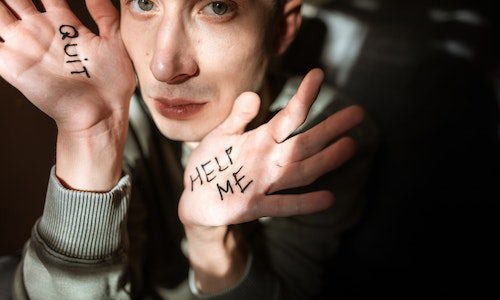For many people, post-traumatic stress disorder (PTSD) is a difficult-to-understand mental health disorder. It impacts lives in various ways, often leading to symptoms that make it hard to function normally. What causes it, and how is it diagnosed?
The National Institute of Mental Health shares that 3.6% of adults in the U.S. suffered from PTSD in the last year, with 6.8% likely to experience it at some time in their life. Without treatment, PTSD can become a chronic, devastating mental health disorder that impacts relationships, the ability to work, and quality of life.
What Is PTSD?
PTSD develops after exposure to a traumatic event and is most often associated with war. Earlier in history, what we now know as PTSD was called “combat fatigue” or “shell shock.” But PTSD isn’t limited to combat. It can occur in anyone who experiences an event that profoundly impacts their mental health.
In addition to combat, traumatic events could include:
- Accidents
- Natural disasters
- Personal assaults
- Physical, sexual, or emotional abuse
- Watching a loved one suffer assault
- Watching a loved one die
Trauma can occur in violent or non-violent situations. The key here is that the event impacted the person significantly in some way, such that the brain could not recover effectively from the experience.
It’s not uncommon for people to experience trauma. According to the National Institute on Mental Health, about 50% of people will experience at least one type of trauma in their lifetime. Yet most people do not develop PTSD.
Symptoms of PTSD
Symptoms of PTSD include intense and often very disturbing thoughts. A person may “see” the events playing out in their mind over and over again. Sometimes these memories can be so powerful that they feel real, as if the event is happening all over again.
When these visions or thoughts become overwhelming, they often lead to moments of:
- Intense fear
- Nightmares
- Flashbacks
- Anger
- Feeling detached from yourself
- Intense sadness or sorrow
One of the more common symptoms of PTSD is flashbacks. For example, a person with PTSD from combat may have a difficult time around fireworks because the sound reminds them of gunfire and can lead to intense flashbacks of those moments they felt overwhelming fear.
Other symptoms of PTSD can include:
- Intrusion: Thoughts of the event are intense, coming back often and creating distressing dreams.
- Alterations in mood and cognition: Some people will develop strong negative feelings and distorted beliefs, such as “I’m an evil person” or “I cannot trust anyone.”
- Avoidance: Some people avoid anything associated with the trauma, including people, places, activities, or objects related to it.
Why Does PTSD Affect Some People and Not Others?
It’s not fully understood why trauma impacts some people in the way it does or why one person may have PTSD and another going through a similar experience may not. It seems that those who are more likely to develop PTSD in response to trauma share some of the following characteristics:
- They experienced the trauma in childhood
- They suffered from anxiety prior to the age of 6
- They have a history of drug or alcohol misuse
- They do not have healthy coping strategies
- They have been in the military, specifically in combat situations
Often, those who experience trauma will have some type of dissociation during and after the event. They may also lack any type of positive support and reinforcement of their mental health during or after the event. Many will experience some type of loss from the event, such as the death of a close family member or the loss of a home.
Should You Get Help for PTSD?
Treatment for PTSD is available, and it can be one of the most important investments you make in your mental health if you believe you are suffering from this disorder. Treatment often includes:
- Cognitive-behavioral therapy
- Eye movement desensitization and reprocessing treatment (EMDR)
- Management of depression and anxiety through talk therapy and medication
- Group therapy to discuss ways to manage the event
Treatment is always individualized to deal with your pain. Treatment does not require you to relive what you’ve experienced, but it can help you to cope with the symptoms and work toward long-term healing.
Canyon Vista Recovery Center Can Help You
If you are struggling with PTSD or think your loved one may be, reach out to Canyon Vista Recovery Center. Our team in Mesa, AZ, will work closely with you to provide the proper support and diagnosis. You can find a way to overcome this challenging pain. Contact us today.










